
Charlie Kirk, a prominent figure in conservative activism and a close ally of former President Donald Trump, died on Wednesday at the age of 31. His death, confirmed by President Trump on his social media platform Truth Social, occurred after he was fatally shot during a college campus event at Utah Valley University. Kirk, who had just taken the stage, was transported to a hospital where he was later declared dead.
From his beginnings as a teenage campus activist to becoming a leading podcaster and founder of Turning Point USA, Kirk left an undeniable mark on the American political landscape. His aggressive approach to campus debates, his staunch support for Trump, and his willingness to engage in culture wars positioned him as a central voice for a new generation of right-wing conservatives. This article delves into the formative years, key achievements, and defining controversies that characterized Charlie Kirk’s impactful, albeit brief, life.
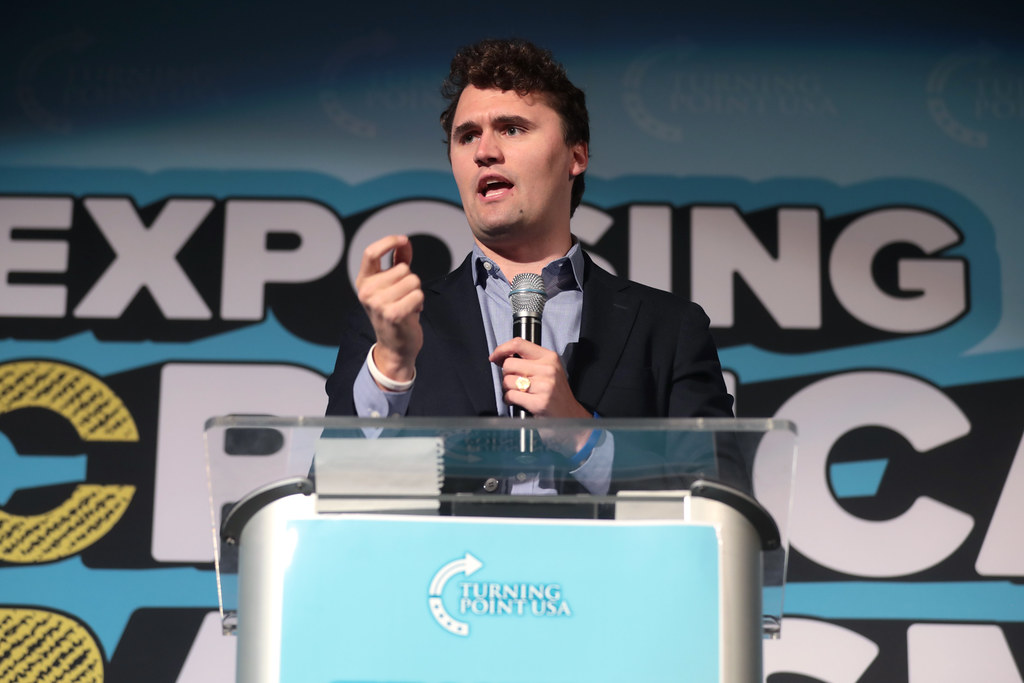
1. Early Life and Influences
Charlie James Kirk was born on October 14, 1993, in Arlington Heights, a suburb of Chicago, Illinois. His parents, Robert and Kathryn Kirk, were actively involved in conservative circles, with his father being a significant donor to Mitt Romney’s 2012 presidential campaign. These early influences provided a foundational understanding of conservative principles that would later shape his public career.
Kirk’s exposure to conservative media began at a young age, particularly during his high school years. He recounted listening to the right-wing radio host Rush Limbaugh, describing him as “unbelievable.” This immersion in conservative commentary further solidified his ideological leanings and helped cultivate his own distinctive voice.
A pivotal moment in Kirk’s early development was the publication of an opinion article for the conservative website Breitbart News while he was still a senior in high school. The article criticized the prominence of liberal economists, such as Paul Krugman, in his textbooks. This piece garnered attention, leading to an appearance on Fox News, which subsequently caught the eye of Bill Montgomery, a restaurateur and early supporter of the Tea Party movement. Montgomery recognized Kirk’s potential, advising him to forgo college and immediately embark on building his vision.
Read more about: Pattie Mallette’s Enduring Prayer: Tracing Justin Bieber’s Unforgettable Journey Through Stardom’s Highs and Lows
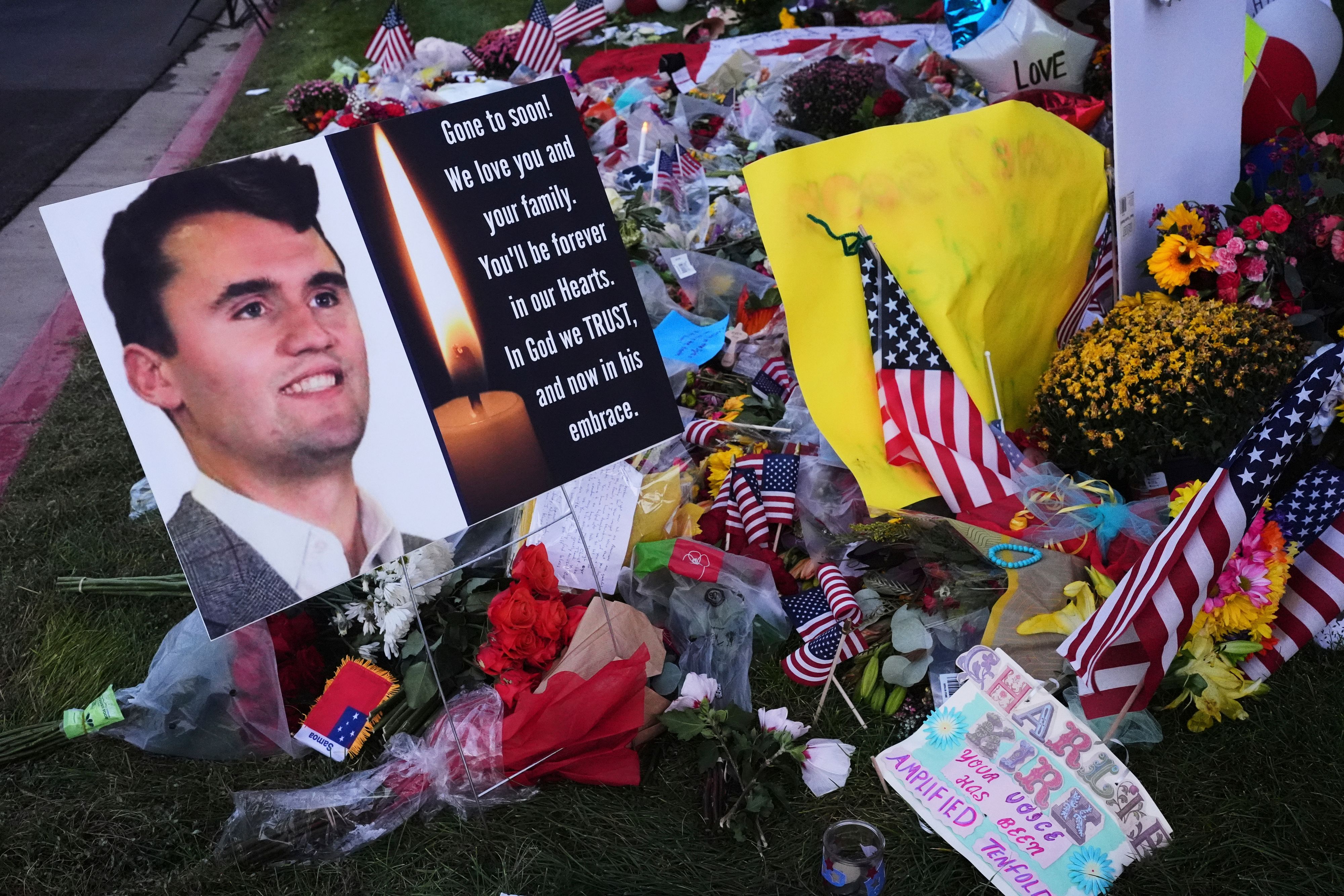
2. Founding of Turning Point USA
Following Montgomery’s advice, Charlie Kirk, then just 18 years old, co-founded Turning Point USA in 2012 with William Montgomery in suburban Chicago. The organization was conceived as a conservative counterweight to liberal organizing platforms like MoveOn.org, with a clear mission to proselytize for low taxes and limited government on college campuses. Kirk expressed dissatisfaction with the existing conservative organizations, stating he “looked around and I was unimpressed by the conservative organizations that were out there.”
The initial stages of Turning Point USA were not an immediate success, yet Kirk’s vision attracted crucial early support. His father, Robert Kirk, played a role by suggesting the group’s name. Significant financial backing also came from Republican donors, including Foster Friess, who sent a $10,000 check after an impromptu pitch from Kirk at the 2012 Republican National Convention. Members of the Trump family, such as Donald Trump Jr., also found themselves drawn to Kirk’s fresh approach to engaging young voters.
Over the subsequent decade, Kirk relocated Turning Point USA’s operations to the Phoenix area, where he oversaw the expansion of what became known as the “Turning Point empire.” The organization grew to encompass five buildings, some of which were named in honor of prominent donors. By the time of his death, Turning Point USA boasted over 800 college chapters and an online following in the millions, including Kirk’s own accounts, with an reported annual revenue of approximately $100 million in 2024.
Read more about: Reese Witherspoon’s Journey: From Southern Roots to Hollywood Royalty and Beyond
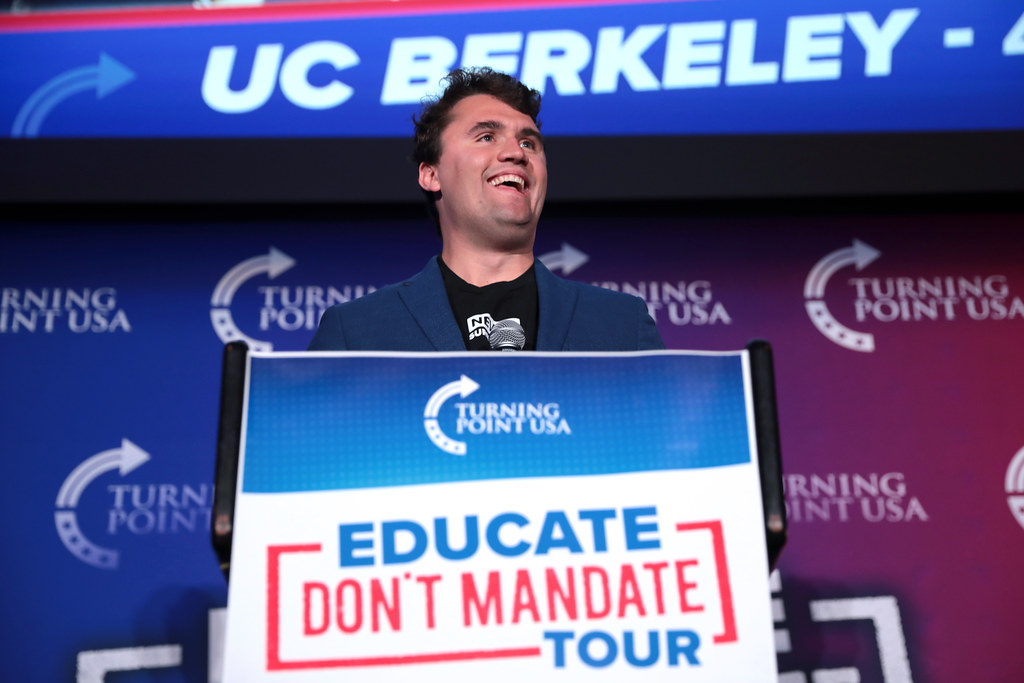
3. Early Political Stances
From the outset, Charlie Kirk championed a core set of conservative principles, preaching free speech, free markets, and limited government. His activism was sharply focused on what he characterized as “rampant Marxism and gender ideology on college campuses.” He actively encouraged students to report professors whom they suspected of embracing such ideas, extending this appeal to parents and grade school students as well.
Kirk was also a staunch advocate for gun rights, a position he articulated during a Turning Point event in Salt Lake City in 2023. He asserted, “I think it’s worth to have a cost of, unfortunately, some gun deaths every single year so that we can have the Second Amendment to protect our other God-given rights.” This statement underscored his belief that the preservation of Second Amendment rights outweighed the tragic consequence of gun-related fatalities, though he also noted that gun deaths could be reduced, but “will never go away.”
His commitment to these principles was evident in his consistent efforts to engage with and influence young conservatives. Through his organization, he aimed to provide a counter-narrative to the liberal politics he perceived as dominant on college campuses across the country. These early stances formed the bedrock of his political identity and the movement he sought to build.
Read more about: The Unseen Cracks: How Hidden Family Truths Shaped Arnold Schwarzenegger’s Path to Stardom

4. Embracing Trump
Charlie Kirk’s relationship with Donald Trump evolved significantly from his initial political leanings. During the 2016 Republican primary, Kirk was not an early Trump supporter, instead throwing his weight behind other candidates, specifically Governor Scott Walker of Wisconsin and then Senator Ted Cruz of Texas. However, his perspective shifted after a meeting with Donald Trump Jr., who subsequently brought Kirk on as his social media coordinator for the general election campaign.
Following Trump’s clinch of the GOP nomination in 2016, Kirk and Turning Point USA “enthusiastically backed Trump.” This marked a pivotal moment, as Kirk transitioned from a campaign aide to an unofficial adviser during Trump’s initial presidential run, and later a confidant. He became a regular fixture on cable television, where he consistently praised the then-president and immersed himself in the unfolding culture wars.
The alliance between Kirk and Trump was mutually beneficial. Trump and his son were “equally effusive” in their praise for Kirk and frequently spoke at Turning Point conferences, further elevating the organization’s profile. A clear sign of Kirk’s rising influence was the frequency with which Mr. Trump retweeted his posts. This deep connection helped propel Turning Point USA from one of many conservative groups into “the center of the right-of-center universe,” solidifying Kirk’s role as a potent political force within the Trump era.
Read more about: The Unavoidable Politics of the Open Road: How Cars Became a Battleground for Freedom, Ideology, and the American Future
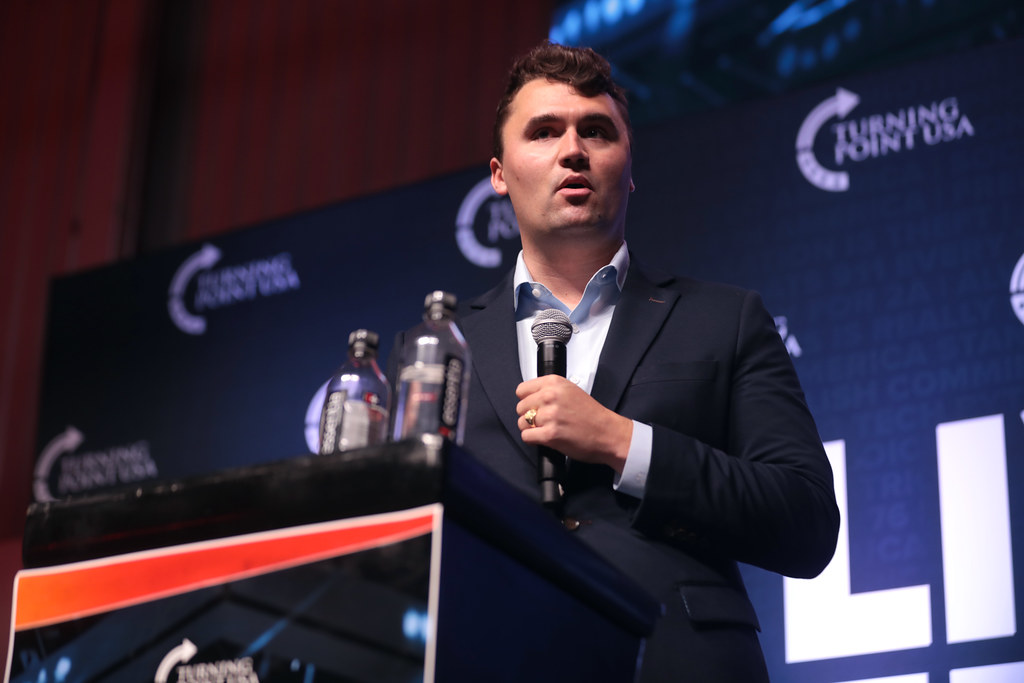
5. Campus Activism and Confrontational Rhetoric
Charlie Kirk made college campuses a primary battleground for his conservative activism, displaying a notable “zeal for confronting liberals in academia.” His strategy involved direct engagement and often provocative rhetoric, designed to challenge prevailing liberal viewpoints. This approach was exemplified in programs like “Surrounded,” where he openly debated 20 liberal college students, defending controversial stances such as his view that abortion constitutes murder and should be illegal.
Beyond individual debates, Kirk and Turning Point USA systematically cultivated a network of young activists. The organization not only brought “high-profile right-wing speakers to colleges” but also provided “training, networking and organizing,” creating a cohesive web of future politicos. Kirk was adept at packaging his public appearances with “slick backdrops and high-value productions,” giving his speaking tours impactful names like “Exposing Critical Racism” in 2021 and “You’re Being Brainwashed” in 2024.
Kirk’s pugnacious and populist conservatism was often characterized by provocative statements on sensitive topics including gender, race, and politics. In 2021, for example, he stirred controversy by referring to George Floyd, the Black man whose murder by Minneapolis police sparked widespread protests, as a “scumbag.” During an event in Mankato, Minnesota, he also made a racially charged comment about the state, stating, “It was built by wonderful Scandinavians, and it seems as if it’s being destroyed now, rather intentionally.” These remarks highlighted his willingness to push boundaries and engage directly in heated cultural debates.
Read more about: Charlie Kirk’s Legacy: An In-Depth Look at the Life, Impact, and Tragic Assassination of a Right-Wing Force

6. Pandemic-Era Controversies
Charlie Kirk’s profile soared further into the conservative stratosphere during the initial stages of the COVID-19 pandemic, primarily due to his outspoken and often controversial views on public health measures and the virus itself. He was quick to attack the World Health Organization (WHO), derisively dubbing it the “Wuhan Health Organization.” Kirk accused the WHO of deliberately concealing the origin of the Covid virus, claiming it had emerged from a Chinese lab in the city of Wuhan.
Throughout the pandemic, Kirk actively rallied opposition to various public health mandates. He voiced strong objections to school lockdowns and mask mandates, aligning himself with a segment of the conservative movement that viewed these measures as infringements on personal liberty. His platform became a conduit for these sentiments, amplifying skepticism towards mainstream public health guidance.
In his commentary, Kirk was known for spreading “unsupported claims and outright lies,” particularly concerning treatments for COVID-19. He famously stated that the drug hydroxychloroquine was “100 percent effective” in treating the virus, a claim that was not substantiated by scientific evidence. Such statements led to temporary sanctions, including Twitter temporarily barring him in early March 2020. This move, however, rather than diminishing his influence, “only added to his notoriety,” seemingly reinforcing his narrative of being muzzled by a liberal elite.
Read more about: Selena Gomez’s Mental Health Startup Under Fire: Unpaid Employees and Allegations of Mismanagement Spark Financial Crisis
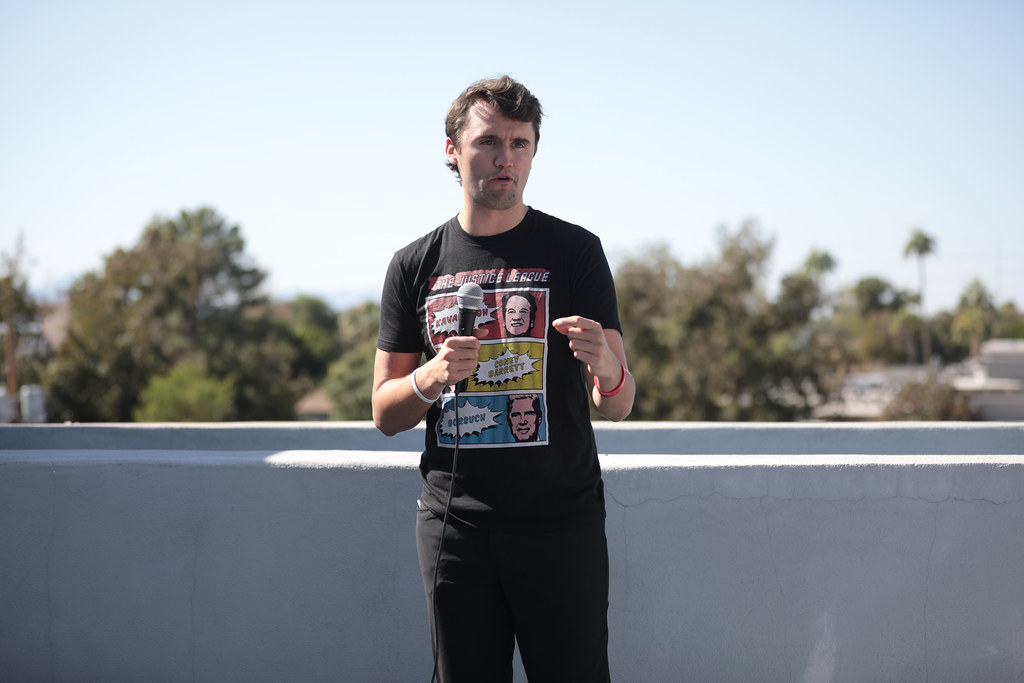
7. January 6th Involvement and “Stop the Steal”
In the aftermath of the 2020 presidential election, Charlie Kirk became a prominent voice in the “Stop the Steal” movement, vehemently embracing the “false right-wing narrative that Mr. Trump had actually won the White House.” He actively organized and led a “Stop the Steal” protest in Phoenix, demonstrating his commitment to challenging the election results. This period marked a significant escalation in his direct involvement in national political protests.
As the date for the certification of election results by Congress approached, Kirk publicly announced his intention to organize buses to transport supporters to Washington on January 6, 2021. He “promised to send 80 ‘buses of patriots’” to the capital to back the outgoing President Trump. However, the actual turnout was significantly lower than promised, with “only about seven buses arrived.” This disparity highlighted a gap between his grand pronouncements and the practical execution of his plans.
Following the events of January 6th, Kirk faced scrutiny from congressional investigators. He “invoked the Fifth Amendment rather than answering questions from the Jan. 6 subcommittee,” signaling his refusal to cooperate with their inquiry. Despite these challenges, Kirk remained undaunted in his support for Trump. He was among the first to rally around Trump after he left office, traveling to Mar-a-Lago to strategize a comeback, sensing that “the country was not done with Trumpism.” This move underscored his unwavering loyalty and his determination to continue shaping the conservative movement alongside Trump.

8. Continuing Influence and “Kingmaker” Status
Charlie Kirk’s ambition extended beyond merely supporting former President Trump; he sought to fundamentally reshape the Republican Party and American politics. Following Trump’s departure from office in 2021, Kirk was among the first to rally around him, strategizing a comeback from Mar-a-Lago, sensing that “the country was not done with Trumpism.” This move underscored his conviction that his brand of sharp-elbowed, culture-war-oriented conservatism, deeply intertwined with Trump’s populist appeal, was the future of the movement.
By the end of 2024, Kirk was widely regarded as a significant “kingmaker” within conservative circles. His influence was evident in his early championing of Senator JD Vance of Ohio as a potential running mate for Mr. Trump, a clear signal of his ability to shape high-level political decisions. This status was further solidified as several of his most significant donors received positions within the Trump administration, demonstrating the direct pipeline between his organization and the centers of political power.
Kirk was also a forceful voice in internal Republican Party matters, particularly in challenging figures he perceived as insufficiently loyal to the Trump agenda. He notably rallied his supporters against Ronna McDaniel, the chairwoman of the Republican National Committee, criticizing her for what he deemed a lack of sufficient support for Mr. Trump. McDaniel subsequently resigned in early 2024, an outcome that many observers attributed, at least in part, to the sustained pressure from Kirk and his aligned forces, solidifying his reputation as an ultimate insider capable of driving significant change.
Read more about: Richard Chamberlain’s Enduring Legacy: A Look at the ‘Strong in Rule’ Namesakes Shaping Entertainment and History
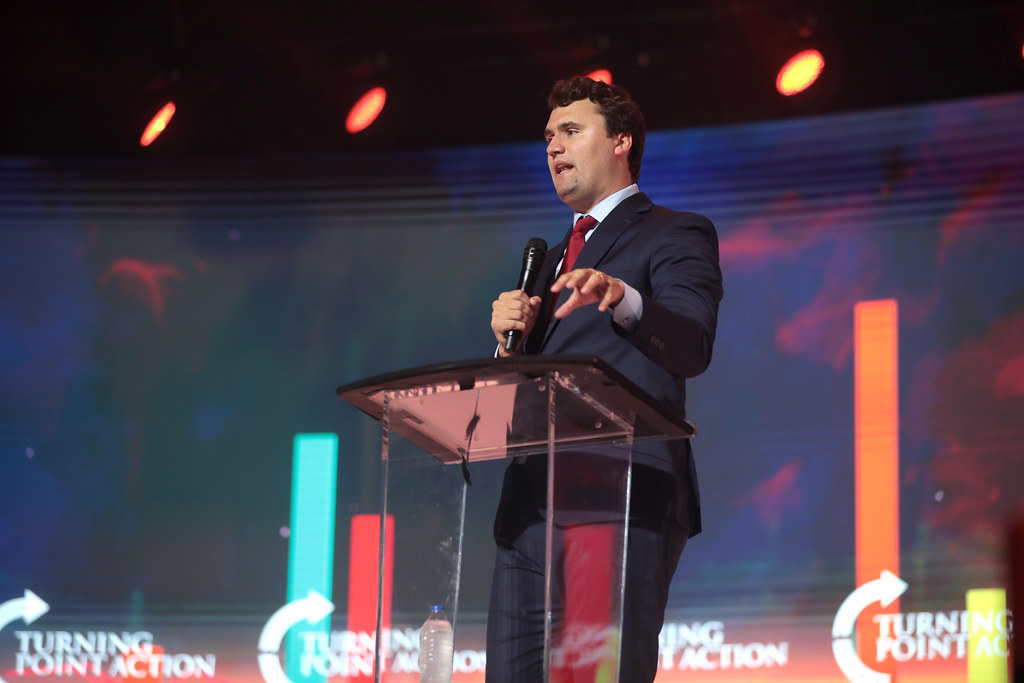
9. Organizational Expansion and Voter Mobilization
Over more than a decade, Charlie Kirk transformed Turning Point USA from a fledgling college activist group into a formidable “Turning Point empire,” with its operations centered in the Phoenix area. The organization expanded to encompass five buildings, some of which were named in honor of prominent financial contributors. This growth reflected Kirk’s strategic vision to build a comprehensive conservative infrastructure that could influence politics far beyond college campuses.
By the time of his death, Turning Point USA boasted an impressive network of over 800 college chapters, cultivating a new generation of conservative leaders. Its online presence had also surged, attracting millions of followers across various platforms, including Kirk’s personal accounts. This extensive reach allowed the organization to disseminate its message widely and engage with a broad base of young conservatives, fostering a vibrant and active movement.
Beyond its campus and online activism, Turning Point USA’s political wing, Turning Point Action, played a critical role in the 2024 election cycle. The group actively helped run get-out-the-vote efforts for Trump’s campaign, focusing on energizing disaffected conservatives and new voters of all ages in key swing states like Arizona, Michigan, and Wisconsin. With an reported annual revenue of approximately $100 million in 2024, Turning Point’s significant financial resources and organizational efforts were widely credited with contributing to Trump’s surprising five-point margin of victory in Arizona, a state he narrowly lost in 2020, thus validating Kirk’s vision of a potent, culture-war-oriented conservatism.

10. The Embrace of Christian Nationalism
In his later years, Charlie Kirk’s evangelical Christian beliefs became increasingly central and intertwined with his political perspective, leading him to advocate for a distinct brand of Christian nationalism. He articulated a clear position that there was no true separation of church and state, arguing that Christian principles should openly guide public policy and cultural norms. This conviction deeply informed his rhetoric and the direction of his organizations.
Kirk founded Turning Point Faith, an initiative designed specifically to amplify the role of Christian nationalism within the broader Trump movement. Through this platform, he sought to galvanize evangelical voters and integrate religious fervor more directly into political action. He frequently referenced the “Seven Mountain Mandate,” a concept popular among some conservative Christians that specifies seven areas—including politics, religion, media, and education—where Christians are called to lead and exert influence.
His public statements often reflected this fusion of faith and politics, characterized by an “apocalyptic style.” During an appearance with Trump in Georgia, Kirk famously declared that Democrats “stand for everything God hates,” framing the political contest as a profound “spiritual battle.” At the same event, he led a crowd of thousands in a “deafening chant of ‘Christ is King! Christ is King!'” Further cementing this perspective, in the foreword to a book written by a pastor and Turning Point staffer, Kirk asserted that “In today’s America, the Christian faithful are faced with a terrifying and broad array of dangers and threats. We are menaced not by new false gods, but by the return of demons from long ago,” underscoring his belief in a dire spiritual struggle for the nation’s soul.
Read more about: Charlie Kirk: Prominent Conservative Activist Dies at 31 After Utah University Shooting, Sparking National Outcry
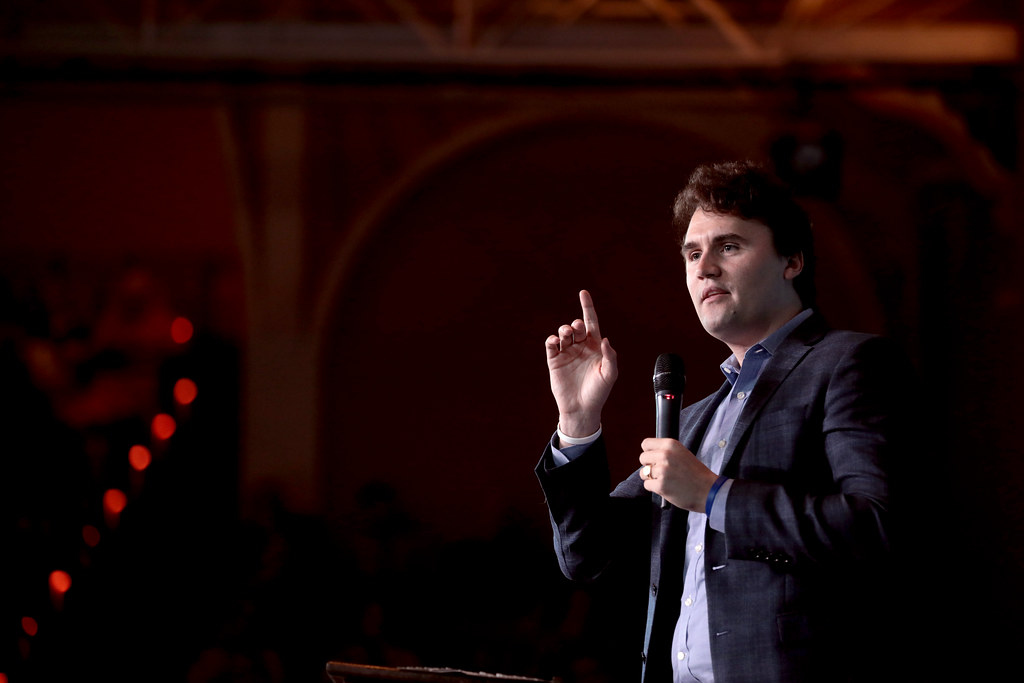
11. Combative Rhetoric and Ideological Purity
Charlie Kirk’s approach to public discourse was consistently characterized by combative rhetoric and an unwavering commitment to what he perceived as ideological purity. He became a fixture in the Trumpian media sphere, where he “tweeted relentlessly with a brash right-wing spin,” often including inflammatory comments that provoked strong reactions from across the political spectrum. His willingness to make provocative statements on sensitive topics was a hallmark of his public persona.
These comments frequently targeted various demographic groups. For example, he made inflammatory remarks about “Jewish, gay and Black people,” drawing significant criticism, even from some conservatives who found his approach distasteful. In 2021, while intensifying his critique of the Black Lives Matter movement on college campuses, Kirk controversially referred to George Floyd, the Black man whose murder by Minneapolis police sparked widespread protests, as a “scumbag.” At other times, he also referred to the Rev. Dr. Martin Luther King Jr. as “a bad man,” further demonstrating his readiness to challenge widely accepted figures and narratives.
Kirk’s rhetoric often veered into the territory of conspiracy theories, including his apparent endorsement of the so-called Great Replacement Theory, a popular far-right idea that nonwhite immigrants will soon displace white Americans. In a 2023 episode of his radio show, he even “appeared to endorse the belief that Jewish people were behind it,” which drew quick condemnation from other conservative groups. Ben Domenech, a founder of the conservative online magazine The Federalist, warned, “If Charlie Kirk remains the head of TPUSA, the right has an anti-Semite problem that will follow them into the coming elections.” Despite these controversies, Kirk maintained his platform, often responding by reaching out to conservative Jewish donors and “otherwise jittery Republicans,” and was granted a prime speaking slot at the 2024 Republican National Convention, demonstrating his resilience and continued influence within the party.

12. Enduring Loyalty to Trump and Post-Presidency Strategy
Charlie Kirk’s loyalty to Donald Trump remained a defining feature of his political career, evolving into a sophisticated post-presidency strategy aimed at ensuring the former president’s enduring influence and eventual return to power. Immediately following Trump’s departure from office in 2021, Kirk did not waver in his support. He was among the very first to travel to Mar-a-Lago, Trump’s estate in Florida, to strategize a comeback, recognizing the persistent power of “Trumpism” even out of the White House.
After Trump’s surprising victory in 2024, Kirk solidified his status as an ultimate insider by making a strategic personal move. He relocated his family—his wife, Erika, and their two young children—to a rented condo located conveniently near Mar-a-Lago. This proximity allowed him to actively participate in crucial discussions and planning sessions concerning the incoming administration, demonstrating his integral role in shaping the new political landscape.
To further underscore his elevated status and the central role of Turning Point USA within the conservative movement, Kirk organized a high-profile gala event in Washington on the eve of the presidential inauguration. This lavish affair attracted approximately 1,500 attendees, each paying at least $5,000 for a ticket, offering them the exclusive opportunity to mingle with prominent figures such as Donald Trump Jr. and Kash Patel, who was slated to become the FBI director. This event not only served as a powerful networking opportunity but also as a public declaration of Kirk’s and Turning Point’s deep entanglement with the heart of the new Trump administration.

13. The Final Public Appearance and Tragic Death
Charlie Kirk’s life tragically ended during one of his characteristic public appearances at a college campus event, the very type of engagement that had defined his career. On Wednesday, September 10, 2025, at the age of 31, Kirk was fatally shot while speaking at Utah Valley University in Orem, Utah. He had just taken the stage, kicking off a planned “American Comeback Tour” that was set to bring his conservative message to colleges from Colorado to Virginia.
The assassination occurred shortly after noon, with Kirk sustaining a gunshot wound to the neck. He was immediately transported to a hospital, where he was later declared dead. The news of his death sent shockwaves through the political landscape, with former President Donald Trump confirming the tragic event on his social media site, Truth Social. Trump expressed profound sorrow, calling Kirk “a very, very good friend of mine and he was a tremendous person.”
Kirk’s death marked a grim moment in a period already characterized by an “escalating number of attacks on political figures” across the nation, including previous incidents involving a Democratic state lawmaker and her husband in Minnesota, and even Mr. Trump himself. His assassination underscored the increasingly volatile and polarized nature of American political discourse, highlighting the severe risks faced by public figures in an era of heightened tensions and animosity.
Read more about: Unveiling the Edge: An In-Depth Look at History’s Most Dangerous Movie Stunts and Their Enduring Legacy
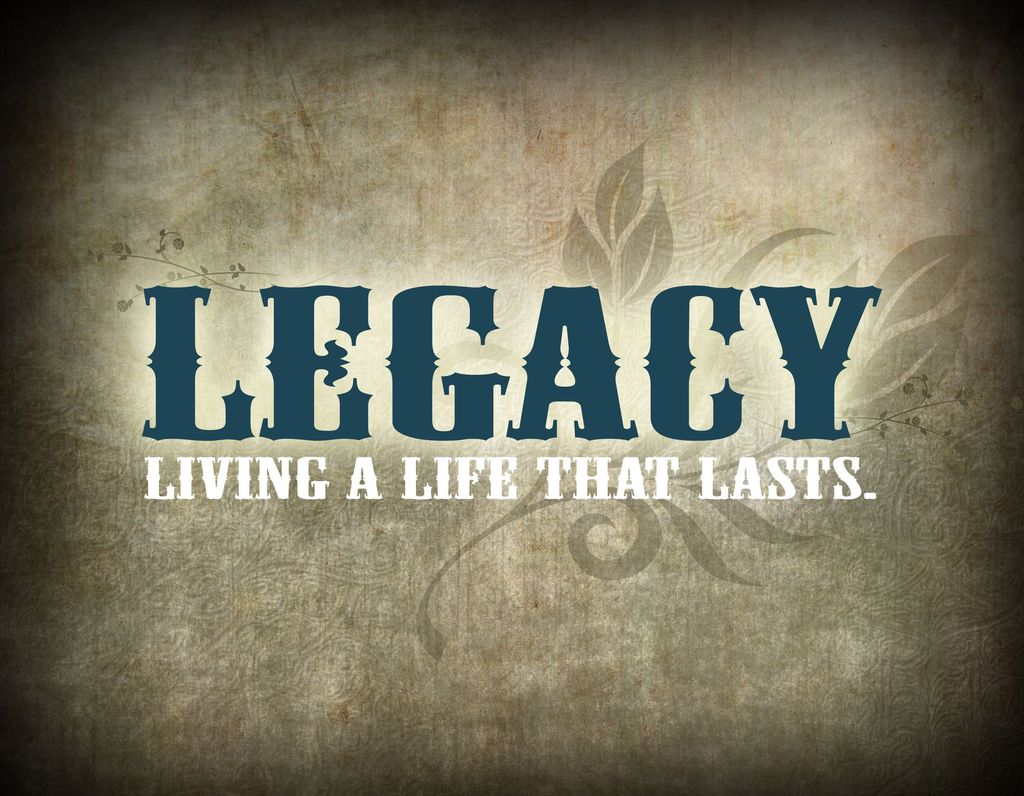
14. The Aftermath: Calls for Debate, Legacy of Influence
In the wake of Charlie Kirk’s tragic death, many admirers and colleagues reflected on his legacy, often emphasizing his commitment to debate and the free exchange of ideas, despite his often confrontational rhetoric. William Wolfe, executive director of the Center for Baptist Leadership, posted on X, “His entire project was built on reaching across the divide and using speech, not violence, to address and resolve the issues!” These sentiments highlighted the paradox of Kirk’s public persona: a fervent ideologue who, at his core, believed in the power of open discussion.
His influence on a new generation of conservatives was undeniable and widely acknowledged. Republican Rep. Anna Paulina Luna of Florida, for example, publicly shared how Kirk had directly impacted her own political trajectory. She recounted that she was “supposed to go to medical school” but that Kirk “called me the day before I was supposed to leave, and recruited me to be the national Hispanic outreach director for the organization.” Luna emphasized the necessity of the types of conversations Kirk fostered, stating, “that conversation needs to happen. You can’t squelch that.”
Kirk is survived by his wife, podcaster Erika Frantzve, a former Miss Arizona USA, whom he married in 2021, and their two young children. The couple, citing their desire for privacy, chose not to reveal their children’s names. His personal life, though kept largely private regarding his family, continued to reflect his commitment to conservative values, as he balanced his demanding public role with his responsibilities as a husband and father.

15. Debunking the $1.15 Million Reward Rumo
In the immediate aftermath of Charlie Kirk’s death, a widespread rumor circulated online claiming that Matthew Robinson, the father of the suspected killer, Tyler Robinson, had vowed to donate a $1.15 million reward to Kirk’s family. This false claim, which gained significant traction on social media platforms like Facebook, Instagram, and Threads, was presented with sensational headlines such as “BREAKING: Tyler Robinson’s Father Vows to Donate $1.15 Million Reward to Charlie Kirk’s Family.”
However, Snopes, a fact-checking organization, thoroughly investigated this claim and rated it as “False.” Despite the emotional appeal of a meme showing alleged photos of Robinson and his father with a purported quote about parental responsibility and financial donation, there was no credible evidence to support the story. CNN had reported that Robinson’s parents and a family friend did persuade him to surrender to authorities, but searches of major news outlets found no reports of the father making any such financial pledge or public statements.
Further investigation into the rumor revealed that the fabricated story was likely part of a broader scheme to generate advertising revenue. The $1.15 million figure itself was sourced from various, legitimate reward offers: the FBI initially offered $100,000, while others, including Trump advisor Alex Bruesewitz, conservative activist Robby Starbuck (each offering $25,000), and billionaire Bill Ackman (pledging $1 million, later an additional $1 million endowment), contributed to a total reward. The claim’s authors seemingly combined these figures to create a compelling, yet false, narrative. An examination of the websites and social media pages promoting the rumor, such as “The Fly Eagles Fly,” often revealed “page transparency” information identifying page managers residing in Vietnam, a common characteristic of “low-quality, artificial intelligence-generated content often referred to as ‘AI slop'” used to fabricate inspirational tales for advertising profit.
**An Enduring Legacy in a Fractured Nation**
Charlie Kirk, at just 31 years old, carved an indelible mark on the American political landscape, transforming from a zealous teenage activist into a central force in the Trump era’s conservative movement. His relentless drive, willingness to engage in fierce cultural battles, and profound dedication to mobilizing young conservatives undeniably shaped the discourse and direction of the Republican Party. Whether seen as a divisive figure or a visionary leader, Kirk’s impact — from the founding and expansion of Turning Point USA to his unwavering alliance with Donald Trump and his passionate advocacy for Christian nationalism — propelled a distinct brand of populism into the mainstream. His tragic death on a college stage served as a stark reminder of the intense passions and fraught divisions that characterize contemporary American politics. As the nation grapples with its complex future, the legacy of Charlie Kirk will undoubtedly remain a subject of debate, a testament to a life lived loudly and a movement profoundly influenced, even in its brevity.



